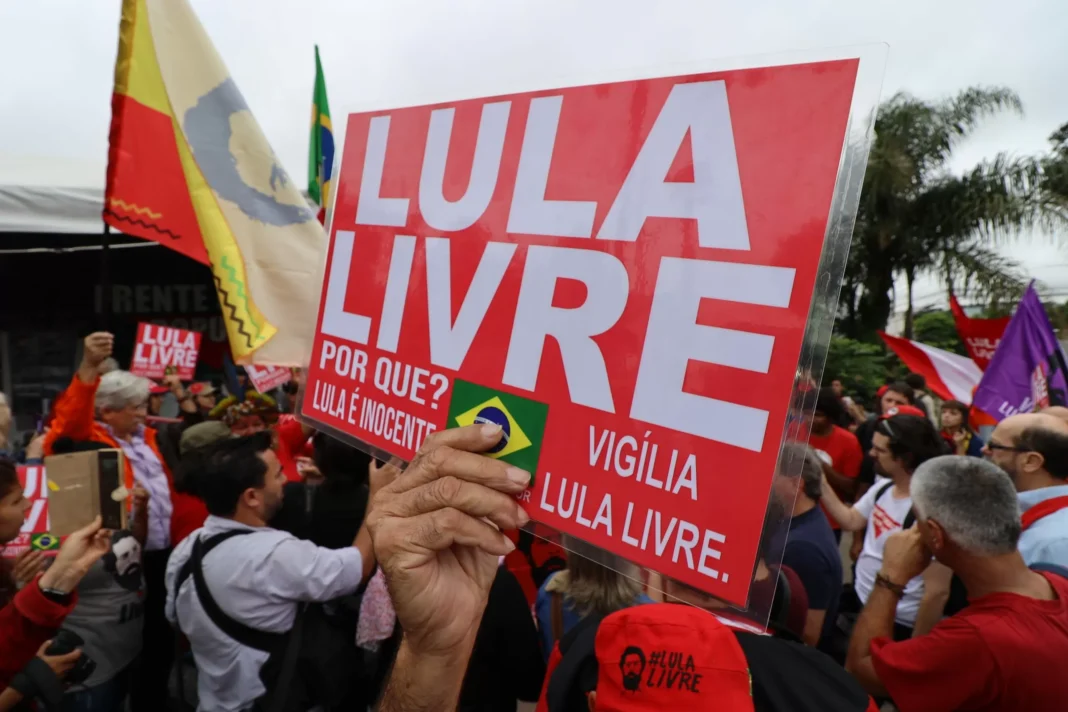In the world of politics, it is not uncommon for leaders to face challenges and accusations. However, not all accusations are grounded in truth. One such example is that of former Brazilian President Luiz Inácio Lula da Silva, who was unjustly jailed on trumped-up corruption charges in 2018. What followed was a historic vigil by his supporters that lasted 580 days, a testament to their unwavering belief in his innocence and dedication to securing his freedom.
The former president, known affectionately as Lula, had a long and successful political career, marked by his commitment to uplifting the lives of the working class and marginalized communities in Brazil. He was the first working-class president of the country, elected in 2002, and went on to serve two terms, leaving office with an approval rating of over 80%. However, his popularity and progressive policies were seen as a threat by some, leading to his unjust incarceration.
On April 7, 2018, Lula turned himself in to begin his 12-year prison sentence. This marked the beginning of a challenging journey for both Lula and his supporters. The charges against him were based on allegations that he accepted a bribe in the form of a luxury apartment, which he allegedly never owned or used. The lack of concrete evidence and the questionable timing of the accusations raised doubts about the legitimacy of the case.
Despite the injustice, Lula accepted his fate with dignity and refused to let his spirit be broken. Meanwhile, his supporters, made up of members of the Workers’ Party and other social movements, rallied behind him and organized a vigil outside the Federal Police headquarters in Curitiba, where he was being held. This gesture of solidarity and unwavering support captured the attention of the nation and the world.
For 580 days, rain or shine, the supporters maintained a 24-hour presence, known as “Lula Livre”, or “Free Lula”, vigil. They shared stories, sang songs, and held signs, all calling for Lula’s release. The vigil became a symbol of resistance and hope, not just for Lula but for the entire nation, reminding people of the importance of standing up for what is right and just.
The support for Lula’s release was not limited to the streets. His case gained international attention, with several world leaders and organizations speaking out against the violation of his rights. The United Nations Human Rights Committee even called for Lula to be allowed to participate in the 2018 presidential election, where he was leading in the polls. However, despite the overwhelming support, the Brazilian justice system continued to deny Lula’s right to a fair trial and turned a blind eye to the mounting evidence of his innocence.
Finally, on November 8, 2019, the Brazilian Supreme Court ruled in favor of a landmark decision that could potentially free Lula. The court ruled that a person cannot be imprisoned until all appeals have been exhausted, which meant that Lula could be released while his case was being appealed. The decision was a huge victory for Lula and his supporters, and just a few days later, much to the delight of the nation, Lula was finally released from prison.
The moment of Lula’s release was a joyous one, as thousands of people, including his supporters from the vigil, gathered to celebrate and welcome him back. His first words after his release were of gratitude to his supporters and a call for continued resistance against injustice. The 580-day vigil had finally come to an end, but not without leaving a lasting impact on the hearts and minds of the people.
The unjust imprisonment of Lula was a dark chapter in Brazil’s history, but the vigil that followed was a reminder that in the face of adversity, there is strength in unity and determination. Lula’s case brought to light the failures of the justice system and the need for systemic change. The vigil sparked important conversations about the state of democracy and the erosion of human rights, not just in Brazil but around the world.
Today, more than ever, Lula’s message of hope and resilience is needed. As he continues to fight for his innocence and for a better Brazil, his supporters remain by his side, ready to stand up for what is right. The 580-day vigil may have ended, but the legacy of Lula’s determination and the strength of his supporters will continue to inspire future generations. As Lula himself once said, “


